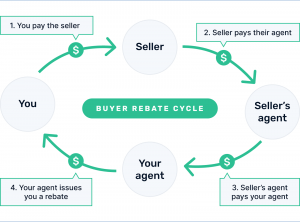8 Reasons To Sue Your Landlord in New York
Go Back To Previous PageIf you find yourself in a disagreement with your landlord and cannot find a way to resolve it amicably, you have the option to take legal action and sue them. However, it is essential to note that suing your landlord can be a costly and time-consuming process. Therefore, before you hire a lawyer and take them to court, it is essential to ensure that you have a valid reason to sue.
Here are the top eight reasons you can sue your landlord for.
Breaking Federal Laws
As a landlord, it is essential to follow specific federal housing laws. If you fail to comply with these laws, you may be sued. The Fair Housing Act is one of the most significant federal laws affecting landlords.
According to this law, it is illegal for landlords to discriminate against tenants based on their age, race, color, origin, religion, disability, gender, lawful occupation, sexual orientation, family status, or any other protected class. Hence, if you feel your landlord unfairly discriminated against you because you belong to a protected class, you can sue them in court.
It’s essential to be aware of the Lead Disclosures Act, a federal law that requires landlords to inform tenants of potential lead exposure for buildings constructed before 1978. If you experience any health issues due to lead exposure and your landlord doesn’t provide the necessary disclosures, you can sue them for breaking the law.
Failing to Return Your Security Deposit to Sue Your Landlord
If your landlord fails to return your security deposit without a valid reason and explanation, you may choose to sue them. Landlords can charge a security deposit to cover unforeseen expenses if you fail to pay rent on time or cause severe damage to the unit.
However, if they decide to keep your deposit, they must notify you and provide an itemized statement declaring the costs they had to cover. If they fail to provide a valid reason or charge you for minor damages that occur naturally as the building ages (known as normal wear and tear), you can take them to small claims court and sue to get your money back.
Failure to Maintain Habitable Premises
As per the law, landlords have a legal obligation to ensure that the residence they rent out to tenants is safe and habitable. If a tenant faces any maintenance issues, the landlord must promptly respond and address the problem.
When the landlord fails to do so and continues to charge rent, the tenant can take legal action against them. If the tenant suffers any health issues or emotional distress due to the landlord’s negligence, they can sue the landlord.
Some problems that can make a residence uninhabitable are mold, electrical issues, a leaky roof, utilities shut off, or a burst pipe. However, the tenant needs to prove that they informed the landlord about the problem and that the landlord failed to fix the issue within a reasonable time frame.
If the tenant has evidence that the landlord was grossly negligent in fulfilling their responsibilities, they may have a strong case.
Unpaid Reimbursements
If you find yourself paying for expenses that should have been the landlord’s responsibility, and they refuse to reimburse you, you can file a lawsuit in small claims court to recover the costs.
For example, if a window breaks during winter and you pay for the repair to avoid freezing, you must have previously contacted the landlord about the issue. The landlord must have either agreed to repay you but failed to do so or ignored the problem for an unreasonable amount of time while disregarding their obligation to provide a habitable living environment.
Wrongful Eviction to Sue Your Landlord
If your landlord evicts you without following the proper procedures or without having a legally valid reason, you can use them for wrongful eviction.
Landlords can evict you for non-payment of rent, causing serious damage to the property, or otherwise violating the lease terms. So, you can fight back if they decide to evict you over a disagreement or behavior not explicitly prohibited in the rental agreement.
Even if you did violate the lease terms, but they evicted you illegally by changing the locks while you were at work or failing to provide the proper notice required by the state, you can bring them to court. You will either have a chance to defend yourself in eviction court or file a separate suit in small claims court.
Injury Resulting from the Landlord’s Neglect
You can sue for damages if you get injured because of the landlord’s carelessness. For example, suppose the maintenance crew improperly installed the hallway flooring, and you trip and fall to your apartment.
In that case, you can file a lawsuit to cover your medical expenses and any missed work due to the injury.
Violation of Your Quiet Enjoyment
As a tenant, not only is it essential to have a habitable living space, but it is also crucial to enjoy your privacy and peace. Your landlord is legally obligated to respect your right to quiet enjoyment of the premises. They can be sued for violating this right if they show up unannounced and refuse to respect your privacy.
However, landlords have the right to access your apartment if they need to conduct their regular responsibilities, such as inspecting for damages, making repairs, or showing the apartment to other prospective tenants. They must provide adequate notice and request to enter the unit at a reasonable hour.
Illegal Clause in Your Lease
If your lease contains any illegal clauses and your landlord tries to enforce them, you can take legal action to protect yourself.
Landlords can include clauses in the lease that forbid certain behaviors, such as keeping non-service animals, smoking, or having loud parties. However, they cannot include anything that violates the law, even if you signed the lease without noticing it.
For example, they cannot give themselves the right to evict you whenever they want or refuse to make repairs due to lack of time. Therefore, if they have sneaked anything into the lease that contradicts their responsibilities as a landlord or breaks any laws, you can take legal action against them.
Conclusion: when to Sue Your Landlord
It is important to exhaust all other options before resorting to suing your landlord. It would help if you tried to reason with them and settle any issues privately, as legal action can be difficult and time-consuming.
However, if all other options have been exhausted and your landlord has done something that requires legal action, you have the right to take them to court.


